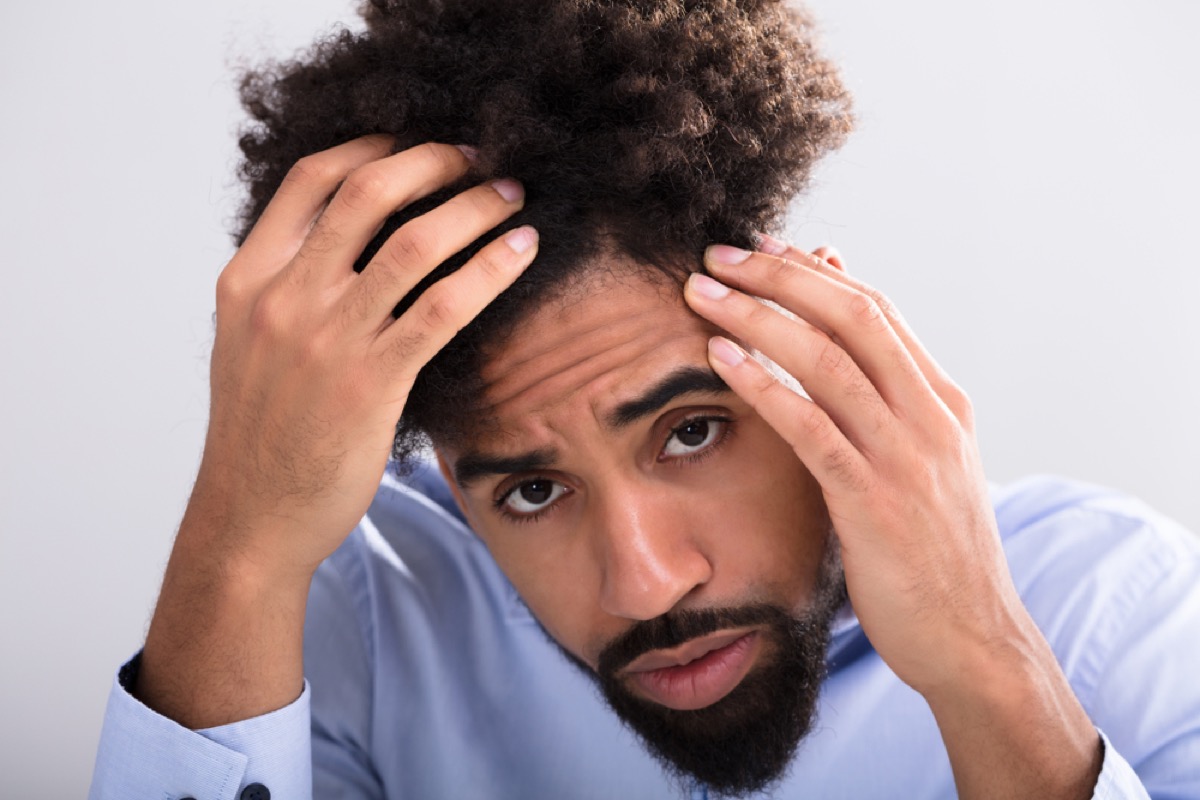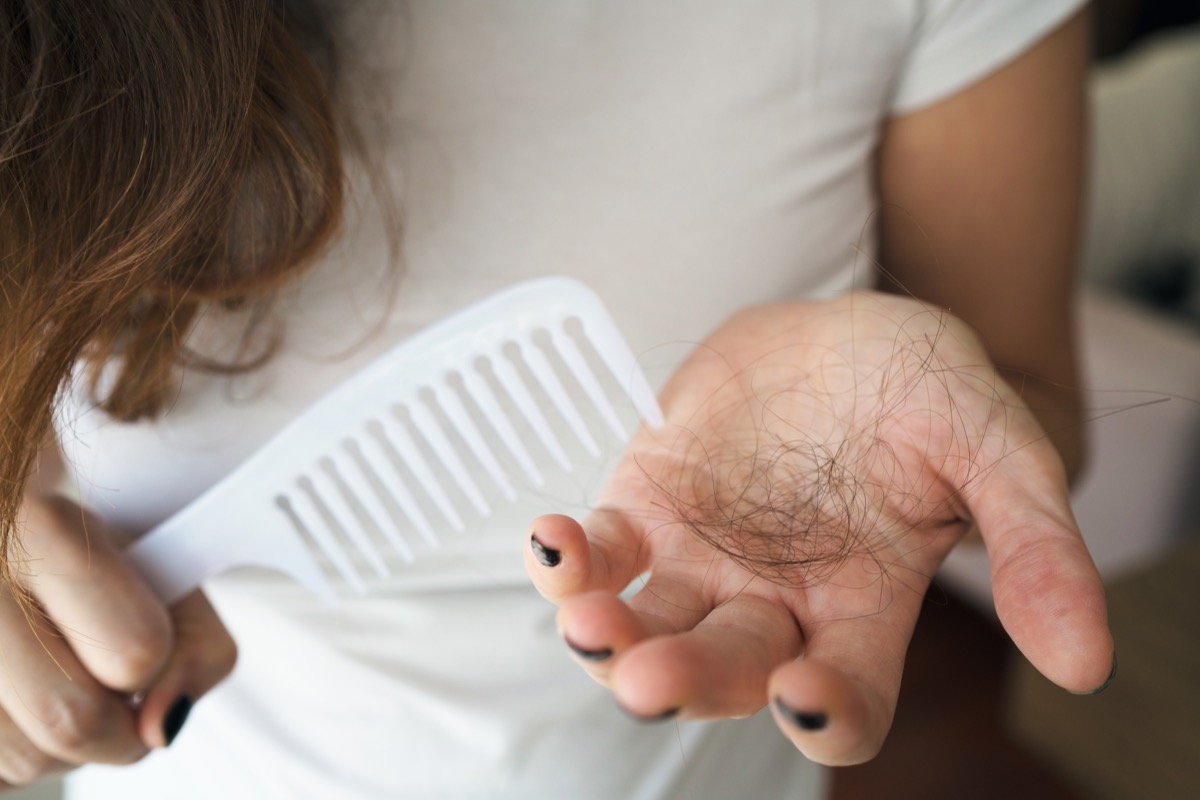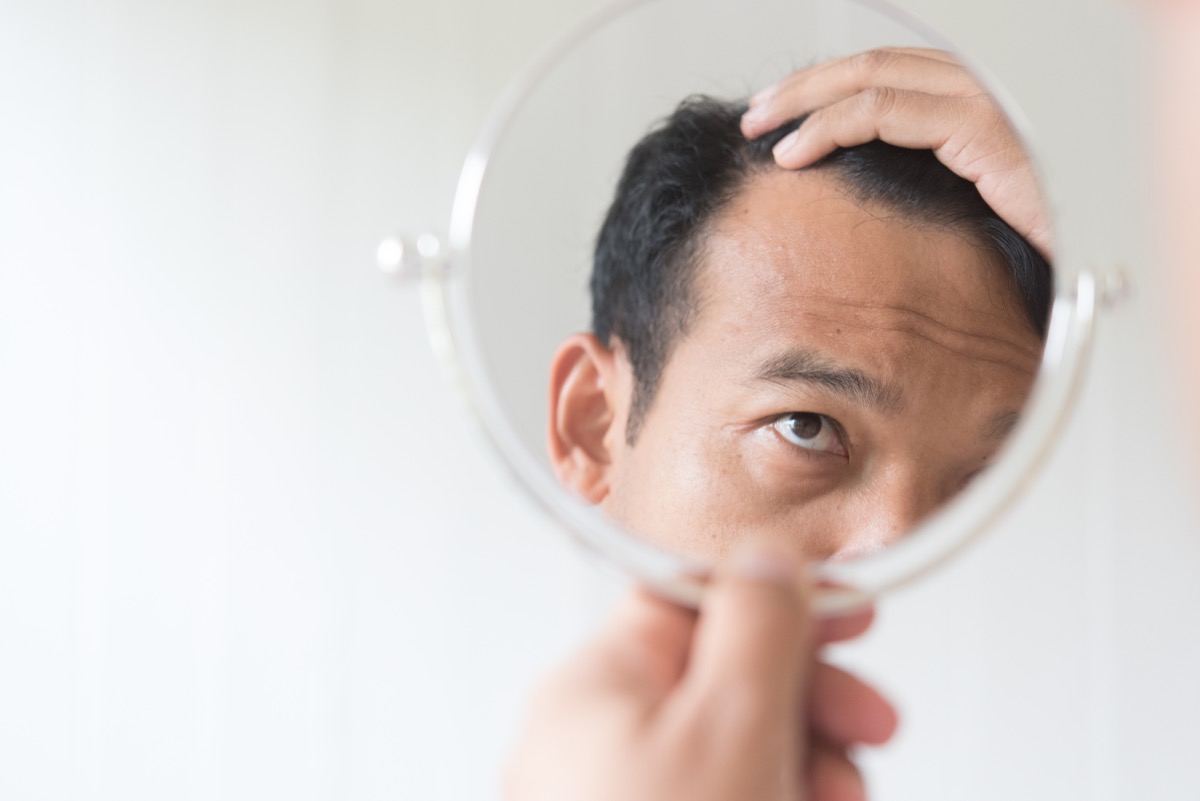The study, which was published in British medical journal The Lancet in January, was based on researchers’ analysis of long-term COVID symptoms recorded in Wuhan, China, the area where COVID-19 first emerged in late 2019. Of 1,733 hospitalized patients studied, the researchers found that fatigue was the “primary long-term symptom” of those who had been sick with the virus when they followed up six months after they were discharged. However, another strange effect was also quite prevalent: hair loss. And for more weird ways COVID could affect you, check out The Disturbing New Symptom of Long COVID Doctors Want You to Know.ae0fcc31ae342fd3a1346ebb1f342fcb Six months after first being ill, the researchers followed up with patients to answer questionnaires, undergo a physical examination, and blood tests. At that point, 63 percent were experiencing fatigue or muscle weakness and 26 percent reported sleeping problems, while 22 percent said that they had suffered hair loss. And for more ways COVID continues to wreak havoc, check out Dr. Fauci Says These Are the COVID Symptoms That Don’t Go Away. The authors of the report wrote that hair loss was more likely to affect women as a long COVID symptom, while they were also more susceptible to general physical decline or fatigue, as well as getting out of breath after activities. Women also appeared to be suffering more acutely from “persistent psychological problems” relating to their illness. And for more COVID news delivered right to your inbox, sign up for our daily newsletter. The American Academy of Dermatology Association (AAD) suggests that under normal circumstances, a person will shed between 50-100 hairs per day. When they lose more than that, it is actually “excessive hair shedding,” known medically as telogen effluvium. By contrast, “hair loss” is technically when the hair actually stops growing in the first place, rather than growing and then falling out. The good news is, the hair shedding associated with COVID doesn’t seem permanent. The body can be triggered to shed after experiencing stressors like losing a lot of weight, giving birth, experiencing high stress levels, undergoing an operation, and either having had a high fever, or recovering from an illness which included high fever. For anyone suffering hair loss post-COVID, the AAD advises that your hair will likely “return to normal on its own. You just have to give it time. As your hair grows back, you’ll notice short hairs that are all the same length by your hairline. Most people see their hair regain its normal fullness within six to nine months.” And for more on the latest COVID news, check out The Pfizer CEO Says This Is How Often You’ll Need a COVID Vaccine.



